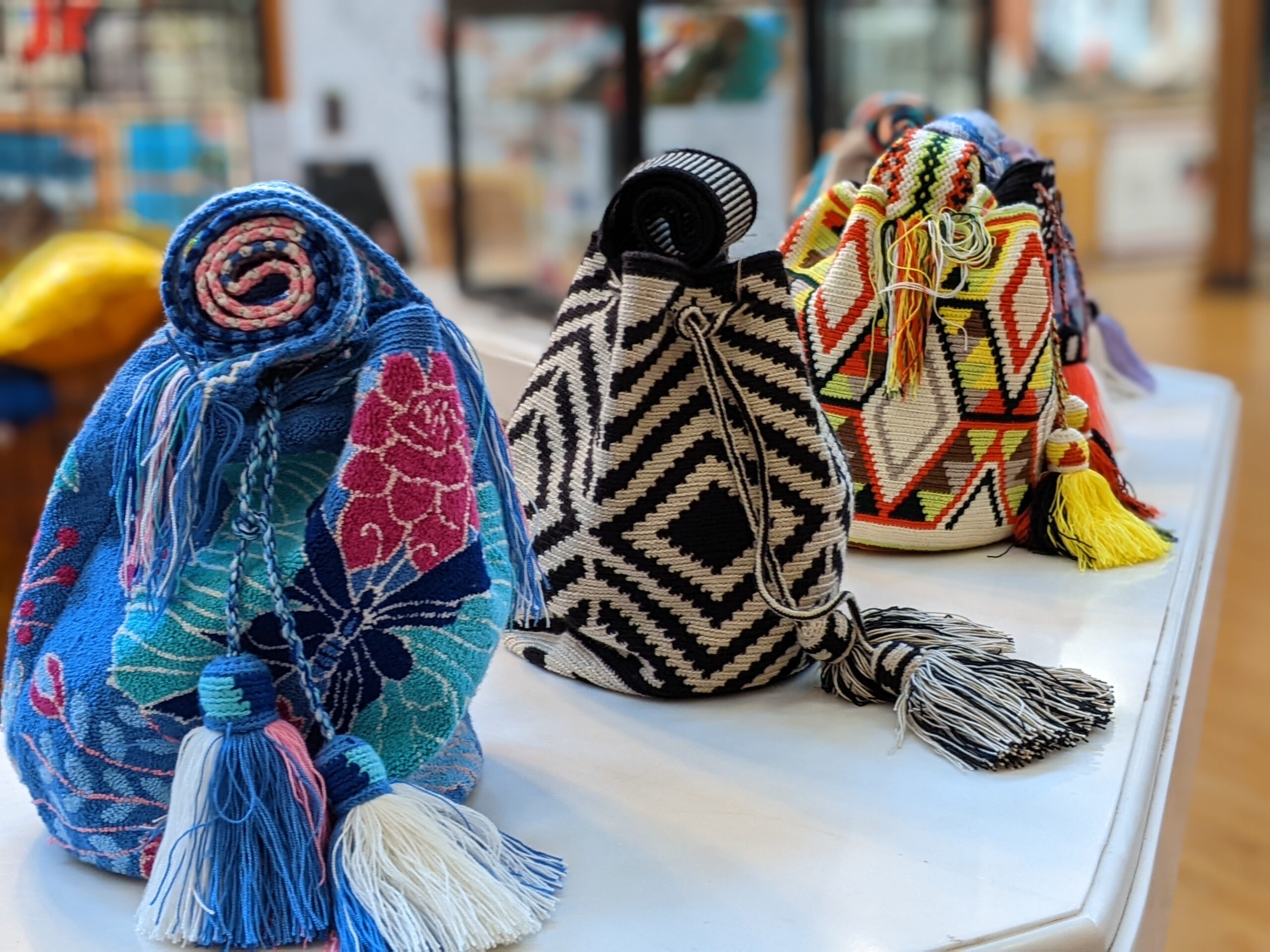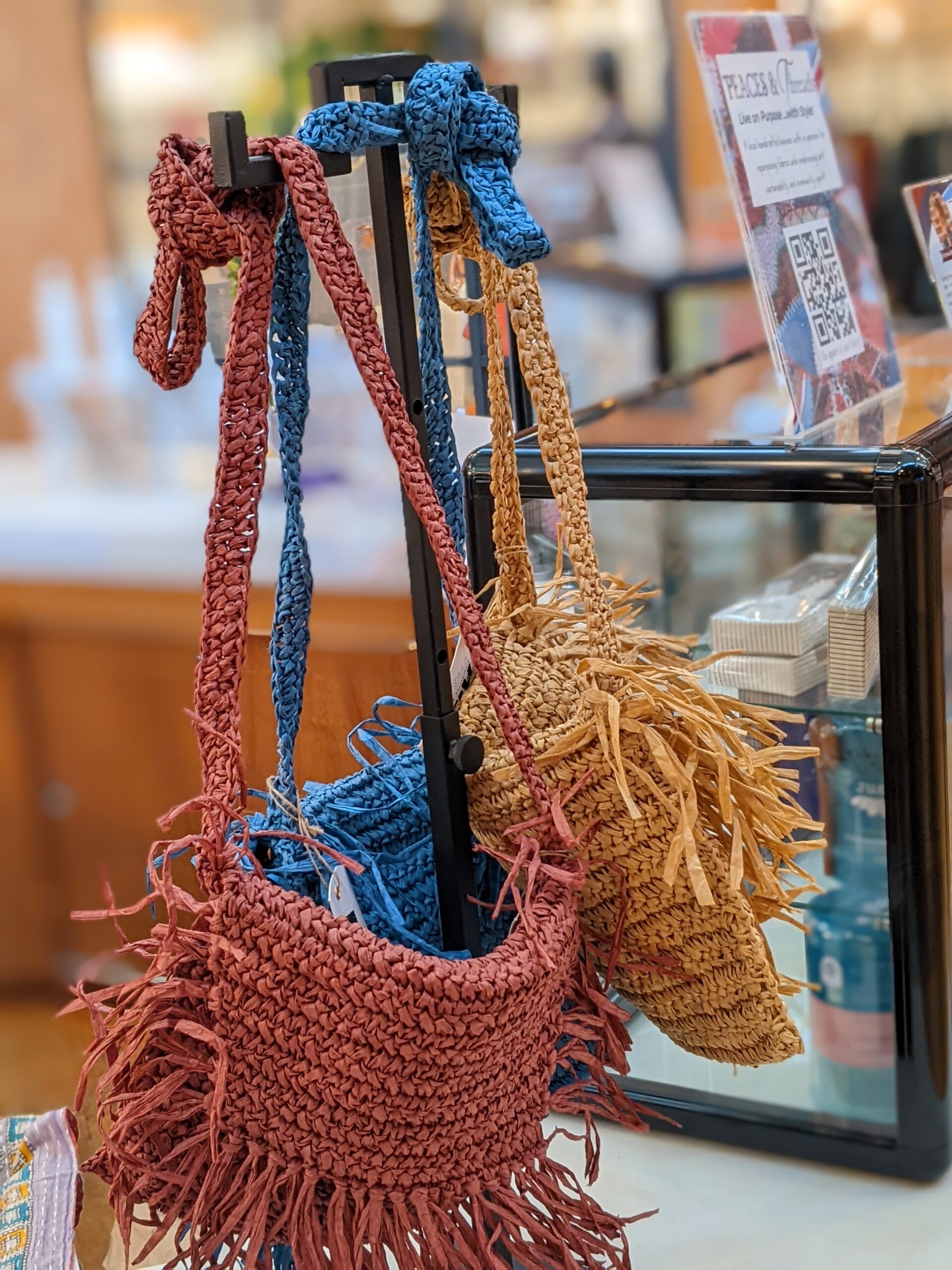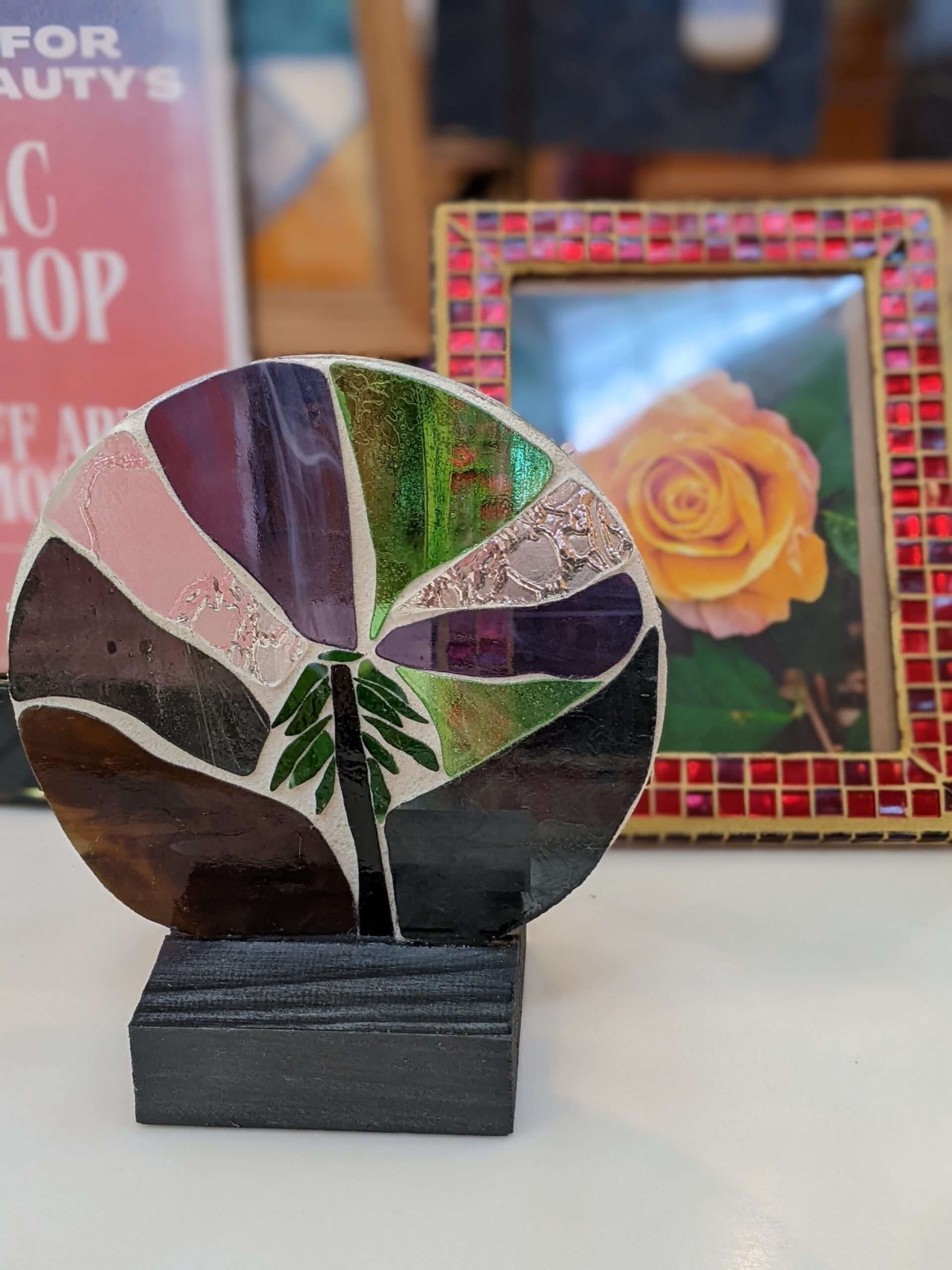Savage Mill has long been a space for entrepreneurs to learn and to grow their businesses. Our new partnership with the Maryland Women’s Business Center Shop Local program is an exciting opportunity to bring support and training to women-owned small businesses in Howard County.
As we gear up for the ribbon-cutting ceremony with Dr. Calvin Ball and other County dignitaries on Monday, August 19, we stopped by the Shop Local kiosk to speak with member Richelle Johnson, owner of Queen’s Temple Handmade, about her business and the benefits of working with Shop Local.

How did you get started?
In 2012 I retired from Baltimore City Police and decided to look around and see what I’d like to do next. I discovered Biggs and Featherbelle’s oatmeal soap and loved it. I researched the different ways to make soap and decided to begin with glycerin soap. To keep it cheap and simple, I didn’t invest in any molds. Instead, I used what I had on hand – a paper milk carton and a Pringles can. I gave away the first soaps as gifts and everyone raved about them. They were impressed I’d made something beautiful using recycled products!
How did you get started with selling your products?
I started out small, renting a $25 table at the Patapsco Flea Market in Baltimore. Along the way, I discovered shea butter and began expanding my selections. I reinvested my earnings into the business and moved up to renting a $100 storefront at the Market.

Handmade wayuu bags by Insogifts
What were some hurdles you encountered?
For me, one of the biggest challenges was technology. I had to learn how to create and run a website and handle online sales. I didn’t know what I was doing, so there were a lot of errors and times I needed help. But I’m not afraid to try new things and push past my comfort zone. I think that’s an important character trait for entrepreneurs.
How did you end up in Howard County?
I kept taking advantage of opportunities that came my way. For example, in 2017 I was invited to table at the National Urban League when they came to the Baltimore Convention Center. When I moved to Columbia in 2015, I started networking here. I shop at the Whole Foods in Columbia, and the cashiers would ask me what products I use on my hair. One of those conversations connected me with Laura Bacon, owner of The 3rd. That really changed my life.

Handmade, sustainable style by Peaces and Threads.
What is The 3rd and how have you benefited?
The 3rd is a gathering place for women of color to work, connect, and collaborate. The networking I’ve done there is incredible. Through the organization’s partnership with Busboys and Poets, I had my first retail opportunity in 2022. In 2023, Howard County General Hospital requested 750 employee gift boxes. That was a huge undertaking for me – I had to come up with a process to fulfill all those orders. I worked hard to ensure that the items represented me and my company well, from the product and packaging to the labeling. I was rewarded with an additional order for 300 products and am now part of the JHU vendor network. I’ve also participated in local vending events and festivals in the County. This month, I’m being featured on the Howard County Office of Equity’s social media platform in celebration of National Black Business Month. I’ve been told that my responsiveness and willingness to give new things a try are a key reason people think of me when they have a new opportunity.
What are you learning?
One of the biggest things I’ve learned is to not be afraid to admit that I don’t know what I’m doing. I’m learning to be myself, and that people will respond to that and help me. For example, I’ve never thought of myself as a teacher, but I agreed to teach a foaming sugar scrub class for a group of ten women at someone’s house. I admitted up-front that I was nervous, and we had a wonderful time. I now regularly conduct classes for up to 40 people and feel comfortable saying I’m a teacher. I’ve learned that many entrepreneurs struggle with imposter syndrome, and that can be a big barrier to success.

Mosaic art by Emily Stevens with Fragile Beauty Mosaics.
What support does Shop Local provide?
Shop Local has three locations in the area. Each month, all the participants take part in a virtual meeting led by a facilitator. The topics run the gamut from marketing to developing a business plan, doing a SWOT analysis, getting funding, handling taxes, and coordinating with the State. Each location also has a weekly meeting to talk about things specific to our location, such as upcoming events and display ideas.
How do the Shop Local members support one another?
There are six of us here at Savage Mill. Some of us have more experience than others and serve as mentors. We work together under a collective umbrella. We take turns staffing the storefront, so we have to learn about one another’s products and how to display and sell them. Each of us brings our own strengths, and we bounce ideas off one another and help each other out. For example, we worked together to develop a label for our shopping bags, with different people contributing in their own ways. We treat each others’ products as well as we do our own because individual success translates to group success. I plan to use the podcast skills I acquired at The 3rd studio to interview my Shop Local colleagues.
What message would you like to give other new entrepreneurs?
Be flexible, adapting to the ebbs and flows. Don’t be afraid to try out new ideas. Keep your mind open to learning and growing, and you’ll go farther than you imagine!
Savage Mill’s Shop Local currently is comprised of six participants: Alumia Design (Hila Por), Fragile Beauty Mosaics (Emily Stevens), Insogifts (Ghina Linn Marin Sanchez), Peaces & Threads (Iqrama Muhammad), Queen’s Temple Handmade (Richelle Johnson), and Showy (Lucia).
